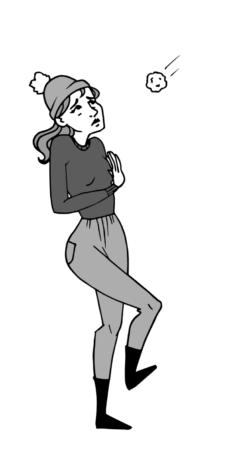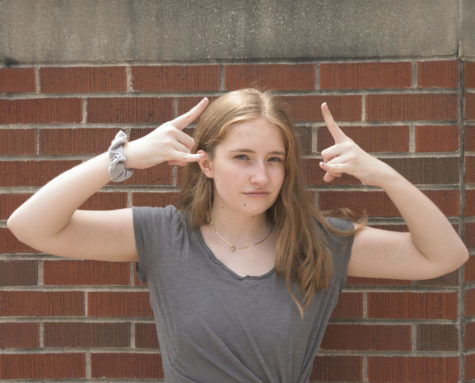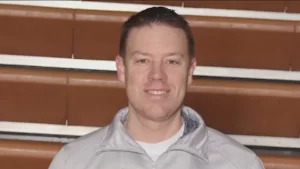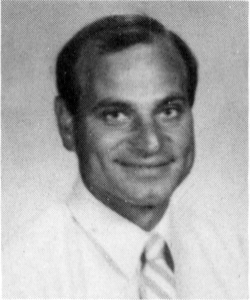Snowball Fight! Anonymous Alerts used in Snowball sabotage
October 29, 2018
Senior Kelly Brinkman was in her anatomy class when she received a pass from the dean.
As a security guard escorted Brinkman down to the office, she thought it was either a misunderstanding or a family emergency.
“At first, what went through my head was ‘is my family hurt?’ and ‘did I say something that someone took the wrong way?’ So I wasn’t worried. I was just like ‘oh, it’s just a misunderstanding,” Brinkman said.
Once there, her dean told her that someone had sent an Anonymous Alert saying Brinkman was spotted drinking at a party on a Snapchat story over Labor Day weekend.
“I was like, first of all, that’s not possible because I don’t drink, and second of all, I was at Elite over Labor Day weekend,” Brinkman said. “I walked him through everything I did that weekend and I don’t think there could have been a misunderstanding.”
Confused, Brinkman asked Dean Kevin Johnson to see the evidence sent in about her.
“There was no evidence. I asked my dean
‘can I see the video?’ and he said, ‘you know Snapchat, those things disappear,’” Brinkman said.
Brinkman was one of three Snowball directors falsely accused through the Anonymous Alert system this fall.
The next day, senior Snowball director Hope Yeo was called down in a similar fashion.
“My dean told me that there was evidence of me at a party over the summer,” Yeo said. “I hadn’t been at any parties over the summer. He just continued to say ‘well, we have evidence, we know you were.’ He was trying to make it seem like I would own up to it, but there was nothing to own up to because I wasn’t at any party.”
When Yeo asked to see the evidence against her, the dean showed her a photo submitted through the Anonymous Alerts system of two other students holding red Solo Cups.
“He said that in [the Anonymous Alert], it said ‘this is Hope Yeo’ but it was not me in the photo,” Yeo said.
After clearing up the situation with her dean, Yeo left the office and thought nothing of it until the next day when senior and fellow Snowball director Ava Nolan was called down to the office.
“It didn’t really cross my mind until Ava also got called down to the office. It was three of us directors called down based off of things that were totally fake, so then it got kind of fishy,” Yeo said.
Nolan was taken out of her first period class to talk to the dean.

“[My teacher] said, ‘a dean’s here for you. Can you pack up your stuff?’ And I was like, ‘here we go… I can’t believe this is happening.’ I had already kind of expected that it was going to happen to someone, I just didn’t know it was going to happen to me,” Nolan said.
Nolan learned someone used the system to alert the school that she had been smoking marijuana at a football game.

“[The dean] said ‘someone on the Anonymous Alert system said that you were smoking weed at a football game.’ Probably that past Friday’s home football game. I was not at that football game. I was at home because I had a cold,” Nolan said.
Due to protocol, Nolan’s backpack and its contents were searched to ensure she did not bring illegal substances on school grounds. Of these directors, she was the only one searched.
Nolan wishes that the deans would check for evidence on a school server such as her email. Doing so would have proven that she was innocent.
“I had actually emailed a teacher and told them I wasn’t going to the football game because I was supposed to work concessions and I told them I wasn’t going because I was sick,” Nolan said. “I hope that maybe they investigate a little bit more before assuming that a student is guilty.”
All three of the students believe that in order for a student to be called down to the office, there should be viable evidence to back up the claims, unless there is an instance with mental health being reported.
“They just need to emphasize to the students why [the system] is there and not to abuse it because it takes away what it’s actually there for,” Brinkman said. “I think if they looked into it more and they actually called down people with evidence, then it would be used for what it’s supposed to be used for.”
Thoroughly investigating each Anonymous Alert takes time. Deans, counselors, Assistant Principal Kelly Zuerner, Assistant Principal Erin Ludwick and Principal Janice Schwarze are responsible for investigating every claim.
“We want people to use Anonymous Alerts, but we want people to use it responsibly,” Schwarze said.
Despite a few isolated incidents, an overwhelming majority of Anonymous Alerts are based in fact. The reason students perceive that there are so many false accusations is because these episodes are getting more attention.
“The idea of false [accusations] is not anything new. It’s just a little more public now, I would say,” Schwarze said. “And I would say that there has recently been, in the last month, a couple of false [accusations].”
Want to know more about Anonymous Alerts? Check out Katherine Gross’s article about the rise in false Anonymous Alerts.

























